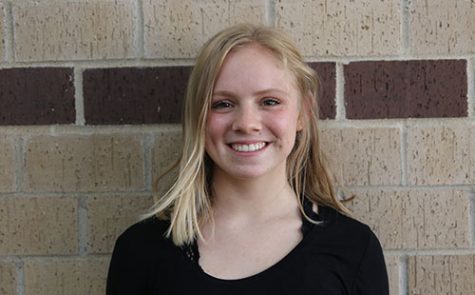Principal Ruff implements student advisory councils
With the population of De Soto High School growing in size, it is a lot easier for student voices to get lost in the crowd. To maximize student involvement and awareness of school policies, Principal Sam Ruff has created a number of new committees students can be a part of so that they can voice their opinions.
The new committees include DHS Protocol Advisory Council, Individual Plan of Study Advisory Council and the DHS Technology Committee. They join various existing committees, but mark an increase in student make their opinions heard in school decision-making.
“We have continued from previous years the Principal’s Council and the Building Site Council, and the district has continued the District Student Advisory Council,” Ruff explained.
Ruff finds it very important that students have a say in a how the school runs because then they can help the administrators get an inside look of what students think about school policies.
“One of our goals for this year is to establish collaborative leadership with our student body. This includes involving students in many of the discussions and decisions that affect them,” Ruff explained. “I have noticed that the students involved have a much deeper understanding and buy-in to what we are trying to accomplish. They have also provided important feedback and suggestions for us to reflect on when considering various options.”
The students involved enjoy being part of school decisions because it helps them better understand school policies while still getting to voice what the student body thinks.
“I love having a voice in the school because I’m very opinionated about how some things in our school should work, and I like being able to voice my opinion to Mr. Ruff and see a change for the better,” senior Aylin Rocha said.
Senior Caroline Whipple agreed with Rocha. She believes in students having a voice in the school because “it’s really rewarding to be able to speak up for” her “peers and be seen as an equal amongst the teachers and administrators.”
Ruff and the students involved in these leadership positions are already seeing positive effects from the increase in student involvement.
“Involving students in how we go about improving DHS gives students a voice and adds a perspective to the discussion. Sometimes adults get caught in the rut of speaking, we have really appreciated listening,” Ruff said.
In the future, Ruff plans on continuing to broaden the amount of student involvement DHS has in school policy committees.
“Last year … modeling the democratic process, I invited students elected to STUCO to represent the student body on these committees, and they have done a great job,” Ruff stated. “I have some ideas for how we could expand student involvement, and but want to work with STUCO on how that can be achieved. More to come.”

Meet Ellie Fowks. This is her fourth year on staff and she is one of three Editor-in-Chiefs. She has previously been a staff reporter, photo editor and...

